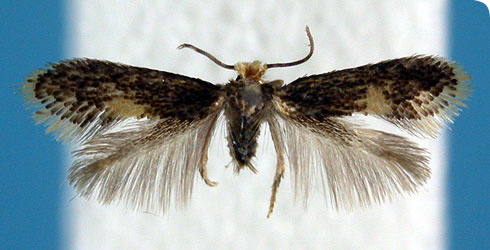Ectoedemia heringella
Ectoedemia heringella was found by Martin Honey, one of the Museum’s Lepidoptera curators, during an on-going survey of moths in the Museum grounds.
The first specimens were collected using mercury-vapour light in 1996. They were identified from genital characters as an Ectoedemia species, but could not be matched with anything illustrated in Johansson et al (1990).
In 2001, Dr E J van Nieukerken, a colleague and a specialist in the Nepticulidae, visited the Museum and, based on external characters and genitalia, identified the material as Ectoedemia heringella (Mariani, 1939). This species had not previously been recorded from Britain or northern Europe.
The moths were exhibited at the Annual Exhibition of the British Entomological and Natural History Society, held in November 2002 (Langmaid and Young 2003).
Look-alikes
Before Ectoedemia heringella was identified in Britain, all mines found on Quercus ilex were assumed to be made by Stigmella suberivora (Stainton, 1869), another species of nepticulid.
The gallery-mine of Stigmella suberivora however, is broader, less contorted and longer than that of Ectoedemia heringella.
Species detail
-

Taxonomy
Find out about the species that Ectoedemia heringella was mistaken for prior to 2001 and how it is now distinguished from this species.
-

Distribution
No-one knows exactly how or when Ectoedemia heringella first arrived in Britain but it is thought to have been accidentally introduced with Holm oak trees. Its distribution is now being mapped.
-

Biology
Ectoedemia heringella moths live near Holm oak trees where their larvae feed in the trees’ leaves. Find out more.
-

References
Get reference matierial for Ectoedemia heringella.
Images
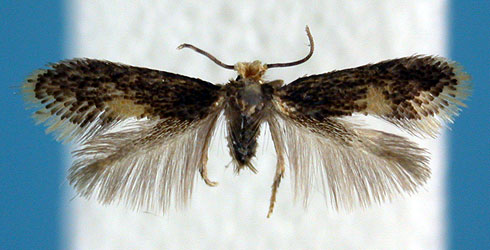
Ectoedemia heringella was discovered new to Britain from the wildlife garden of the Natural History Museum.
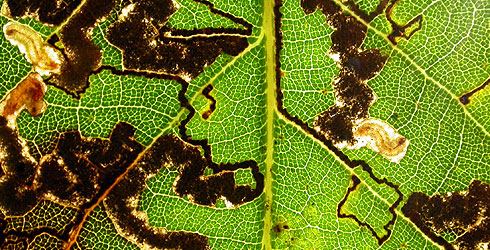
Prior to 2001, all Ectoedemia heringella mines Quercus ilex were assumed to be those of Stigmella suberivora.
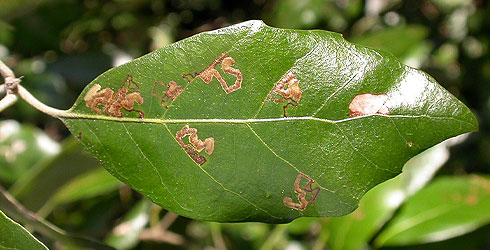
In Britain, Ectoedemia heringella is confined to areas where Holm Oak is grown
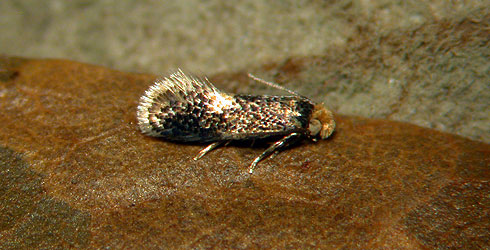
Ectoedemia heringella
Author

$linktitle
Curator of moths (World Noctuoidea and British Lepidoptera) in the Department of Life Sciences.
